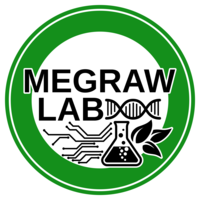| Title | Environmental stresses modulate abundance and timing of alternatively spliced circadian transcripts in Arabidopsis. |
| Publication Type | Journal Article |
| Year of Publication | 2015 |
| Authors | Filichkin, SA, Cumbie, JS, Dharmawardhana, P, Jaiswal, P, Chang, JH, Palusa, SG, Reddy, ASN, Megraw, M, Mockler, TC |
| Journal | Mol Plant |
| Volume | 8 |
| Issue | 2 |
| Pagination | 207-27 |
| Date Published | 2015 Feb |
| ISSN | 1752-9867 |
| Keywords | Alternative Splicing, Arabidopsis, Arabidopsis Proteins, Circadian Clocks, Gene Expression Regulation, Plant, Introns, Nonsense Mediated mRNA Decay |
| Abstract | Environmental stresses profoundly altered accumulation of nonsense mRNAs including intron-retaining (IR) transcripts in Arabidopsis. Temporal patterns of stress-induced IR mRNAs were dissected using both oscillating and non-oscillating transcripts. Broad-range thermal cycles triggered a sharp increase in the long IR CCA1 isoforms and altered their phasing to different times of day. Both abiotic and biotic stresses such as drought or Pseudomonas syringae infection induced a similar increase. Thermal stress induced a time delay in accumulation of CCA1 I4Rb transcripts, whereas functional mRNA showed steady oscillations. Our data favor a hypothesis that stress-induced instabilities of the central oscillator can be in part compensated through fluctuations in abundance and out-of-phase oscillations of CCA1 IR transcripts. Taken together, our results support a concept that mRNA abundance can be modulated through altering ratios between functional and nonsense/IR transcripts. SR45 protein specifically bound to the retained CCA1 intron in vitro, suggesting that this splicing factor could be involved in regulation of intron retention. Transcriptomes of nonsense-mediated mRNA decay (NMD)-impaired and heat-stressed plants shared a set of retained introns associated with stress- and defense-inducible transcripts. Constitutive activation of certain stress response networks in an NMD mutant could be linked to disequilibrium between functional and nonsense mRNAs. |
| DOI | 10.1016/j.molp.2014.10.011 |
| Alternate Journal | Mol Plant |
| PubMed ID | 25680774 |
| Grant List | GM097188 / GM / NIGMS NIH HHS / United States |
Environmental stresses modulate abundance and timing of alternatively spliced circadian transcripts in Arabidopsis.
Submitted by Megraw Lab Admin on Tue, 2016-07-12 22:07

